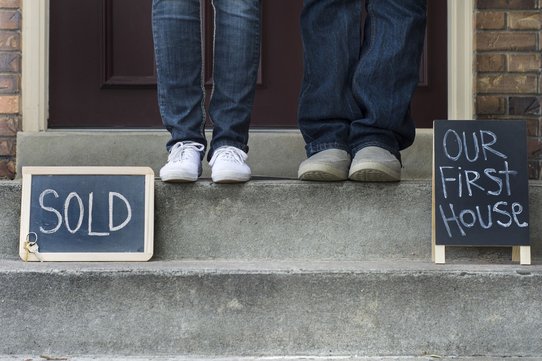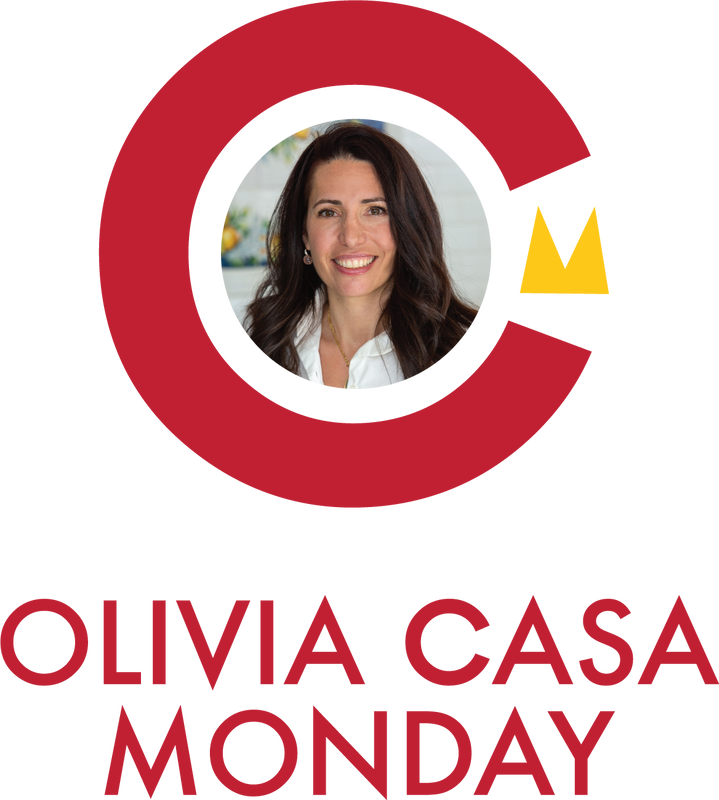10 Checklist For Buying Your FIRST Home

First time home owners face a lot of issues ranging from choosing a location, to reconciling their budget with the available homes in the market, getting the proper financing from banks, and deciding how much down payment they can afford just to name a few.
I thought you might be able to use a 10-Step Checklist before moving forward.
Check your credit – You won’t believe how many people look for a new home without putting their credit in order. It’s not that they aren’t ready. It’s just that they don’t know that having proper financing systems in place is key. Check your credit rating. Confirm you’re eligible for loans you need to secure the home you want. Confirm your lender is ready to give the “go” based on your rating and what you need in terms of money.
Evaluate assets and liabilities – Your asset is everything that puts money in your bank. Liabilities are things that take money away from you. Know your worth. This helps secure better financing and, of course, eventually helps you get the dream house you’ve always wanted.
Keep your money where it is – A lot of people make the mistake of spending way too much money after selling their home and looking to buy another one. If your bank sees a large movement of funds from your accounts just after selling your existing home and looking to buy a new one, they won’t be too relaxed. Leave your cash chunk with them. Let them know you’re going nowhere.
Get pre-approved for your home loan – This is as easy as speaking with your banker to see where you stand. A large chunk of the work you have to do is in getting enough financing so this is important.
Do background check on the area you're buying into – now that you have the proper financing, do a background check on your community. If you don’t have the time to do that, speak with your real estate agent. Let me get you all the data, checks, going rate, crime rate, cost of living, hidden bills, neighborhood behavior and every little detail. These details matter. You don’t want a neighborhood with high crime rates, for example. In the same vein, availability of public transport may be a priority for you. Good agents can help you with this.
FACT: You are not likely to have success timing the market. The real estate market is not like the stock market. The market is not as liquid as you may want to believe. Generally, houses stay on the market anywhere from one month to a year. It’s a people market and has to be treated as such. The liquidity of the market can’t be timed except if there is a huge economic meltdown.
Generally, pricing of homes appreciates over time. That being said, the longer you wait the more you are likely to pay. Don’t try to game the market. Getting started now is the best advice we can give. PRICE is not the only driving force in the marketplace. Instances as unique as the owner, neighborhood, news, weather, events, security and a host of other events, can weigh heavily on what type of market you will buy in. Predicting this is tricky.
Ask yourself how many homes you actively tried to pursue. When you make plans to view homes, a lot of variables pop into the equation. Variables like cost, maintenance, taxes, and everything in between. The fact that you love it now doesn’t mean you'll want to stay there forever. You might want to move later on in life. You might have a new job, better income, or your kids might get old and marry, leaving you with an option to sell the big house down the line for a much smaller and compact one. Think about that a bit. It’s not about the now. It’s about the later.
Property tax is BIG, check it out. This doesn’t need much explanation. The bigger the home, the bigger the taxes. This is why you have to work with a committed realtor so you can depend on their experience to help you make the best decision. Obviously, your budget will determine a lot of the decisions you will make in these regards. Work with someone who knows what they are doing. We can speak for ourselves as you might have noticed in this series of emails but, you’re at liberty to make the best realtor decision for yourself.
After all is said and done, plan your down payment ahead of time. Simple enough. Knowing exactly how much you want to put down on any deal helps you avoid wasting time.
Logic vs. Emotion – Which should you use in making a decision when buying your first home or any home for that matter? Truth is, it is good practice to keep your emotions away when making your decision. Once you love a house, be patient enough to go through the numbers and the hidden features. This is another reason why you need a committed and trustworthy realtor. The devil truly is in the details. Emotion helps to connect with a home and you feel it’s what you want, but the numbers must be create a feeling of buyer’s remorse – something we don’t want you to experience.
Numbers are a logical thing. Remove emotions from the actual negotiating and buying process. If you can’t detach yourself, trust your realtor to help you. We have done hundreds of deals before. We don’t get stuck in the emotional part of it. That differentiates us from a lot of the people you will meet. In retrospect, we correlate your emotion with the logical part of the decision. This helps you avoid a lot of the mistakes people traditionally make. Trust your realtor to help you. Our clients trust us to help with making the best decisions for them.
I thought you might be able to use a 10-Step Checklist before moving forward.
Check your credit – You won’t believe how many people look for a new home without putting their credit in order. It’s not that they aren’t ready. It’s just that they don’t know that having proper financing systems in place is key. Check your credit rating. Confirm you’re eligible for loans you need to secure the home you want. Confirm your lender is ready to give the “go” based on your rating and what you need in terms of money.
Evaluate assets and liabilities – Your asset is everything that puts money in your bank. Liabilities are things that take money away from you. Know your worth. This helps secure better financing and, of course, eventually helps you get the dream house you’ve always wanted.
Keep your money where it is – A lot of people make the mistake of spending way too much money after selling their home and looking to buy another one. If your bank sees a large movement of funds from your accounts just after selling your existing home and looking to buy a new one, they won’t be too relaxed. Leave your cash chunk with them. Let them know you’re going nowhere.
Get pre-approved for your home loan – This is as easy as speaking with your banker to see where you stand. A large chunk of the work you have to do is in getting enough financing so this is important.
Do background check on the area you're buying into – now that you have the proper financing, do a background check on your community. If you don’t have the time to do that, speak with your real estate agent. Let me get you all the data, checks, going rate, crime rate, cost of living, hidden bills, neighborhood behavior and every little detail. These details matter. You don’t want a neighborhood with high crime rates, for example. In the same vein, availability of public transport may be a priority for you. Good agents can help you with this.
FACT: You are not likely to have success timing the market. The real estate market is not like the stock market. The market is not as liquid as you may want to believe. Generally, houses stay on the market anywhere from one month to a year. It’s a people market and has to be treated as such. The liquidity of the market can’t be timed except if there is a huge economic meltdown.
Generally, pricing of homes appreciates over time. That being said, the longer you wait the more you are likely to pay. Don’t try to game the market. Getting started now is the best advice we can give. PRICE is not the only driving force in the marketplace. Instances as unique as the owner, neighborhood, news, weather, events, security and a host of other events, can weigh heavily on what type of market you will buy in. Predicting this is tricky.
Ask yourself how many homes you actively tried to pursue. When you make plans to view homes, a lot of variables pop into the equation. Variables like cost, maintenance, taxes, and everything in between. The fact that you love it now doesn’t mean you'll want to stay there forever. You might want to move later on in life. You might have a new job, better income, or your kids might get old and marry, leaving you with an option to sell the big house down the line for a much smaller and compact one. Think about that a bit. It’s not about the now. It’s about the later.
Property tax is BIG, check it out. This doesn’t need much explanation. The bigger the home, the bigger the taxes. This is why you have to work with a committed realtor so you can depend on their experience to help you make the best decision. Obviously, your budget will determine a lot of the decisions you will make in these regards. Work with someone who knows what they are doing. We can speak for ourselves as you might have noticed in this series of emails but, you’re at liberty to make the best realtor decision for yourself.
After all is said and done, plan your down payment ahead of time. Simple enough. Knowing exactly how much you want to put down on any deal helps you avoid wasting time.
Logic vs. Emotion – Which should you use in making a decision when buying your first home or any home for that matter? Truth is, it is good practice to keep your emotions away when making your decision. Once you love a house, be patient enough to go through the numbers and the hidden features. This is another reason why you need a committed and trustworthy realtor. The devil truly is in the details. Emotion helps to connect with a home and you feel it’s what you want, but the numbers must be create a feeling of buyer’s remorse – something we don’t want you to experience.
Numbers are a logical thing. Remove emotions from the actual negotiating and buying process. If you can’t detach yourself, trust your realtor to help you. We have done hundreds of deals before. We don’t get stuck in the emotional part of it. That differentiates us from a lot of the people you will meet. In retrospect, we correlate your emotion with the logical part of the decision. This helps you avoid a lot of the mistakes people traditionally make. Trust your realtor to help you. Our clients trust us to help with making the best decisions for them.



